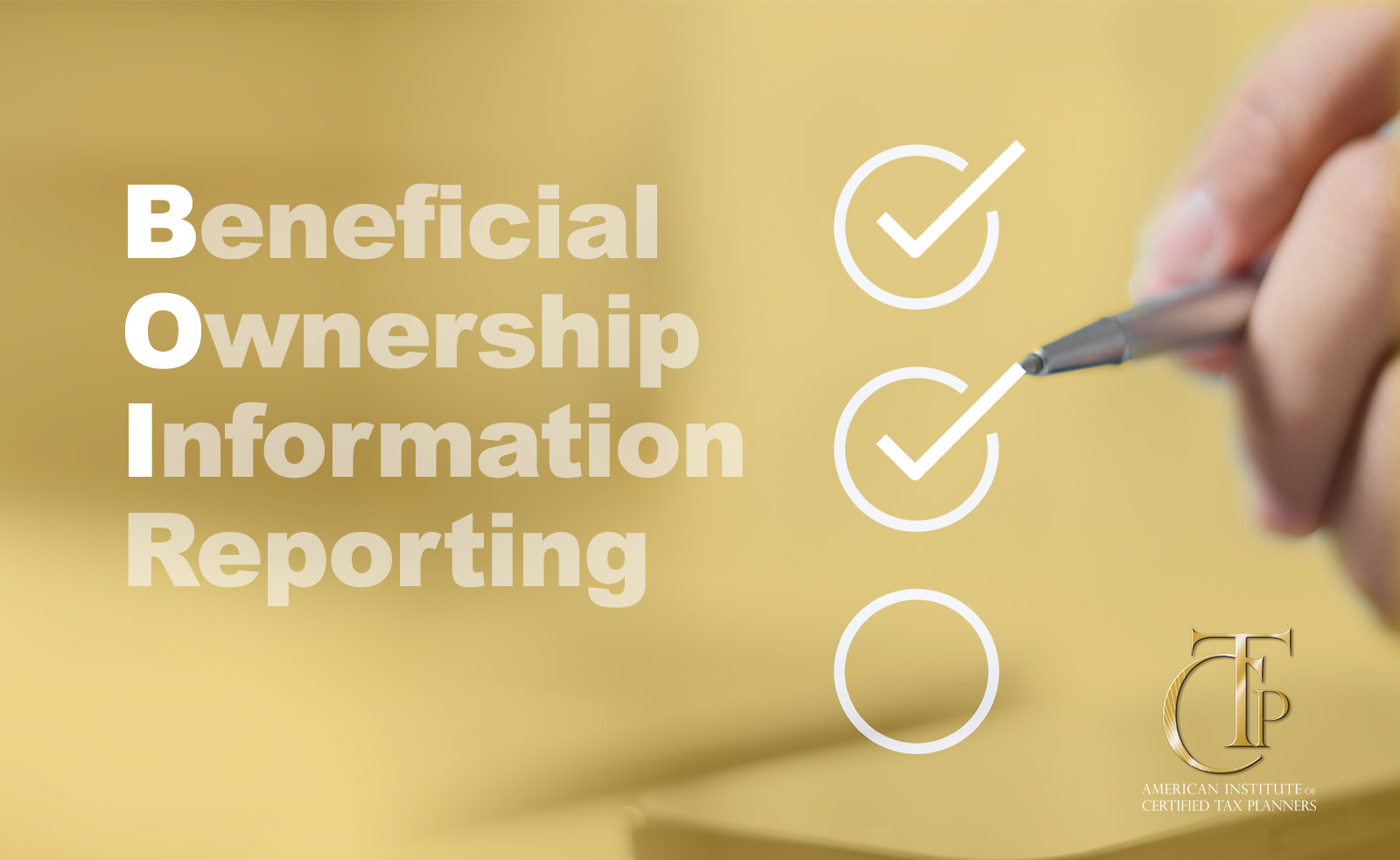In the rush to finish last year strong, small business owners may now find themselves caught off guard by the legal requirements awaiting them in 2024. This is where you can provide additional value to your tax clients, just by familiarizing them with the new beneficial ownership information requirement. This comes as part of the Corporate Transparency Act, which seeks to crack down on illicit business activities using small businesses as a screen. A major part of this legislation is the requirement for smaller businesses to provide data on who controls their business to the Financial Crimes Enforcement Network (FinCEN). This will hopefully increase transparency by allowing the U.S. government to trace financial sources more easily.
Who Has to File a Beneficial Ownership Report?
First, how do you know if this new requirement even applies to your small business clients? Beneficial ownership information (BOI) is required from all types of businesses from corporations to LLCs—really any entity that is registered with a state secretary or a similar office. The rule can also apply to foreign entities. Even if a company was originally formed abroad, if they had to register in the U.S. to conduct business in their chosen jurisdiction, then they must also report BOI.
Keep in mind that a number of businesses are exempt. For instance, publicly traded companies do not have to fulfill this new requirement, since they are already required to disclose all the same information through the SEC. FinCEN is not looking to make companies report the same data twice. So banks, credit unions, and tax-exempt organizations are also exempt, since their regulatory compliance requirements already require them to submit that kind of information.
Large operating entities are also exempt. In the legal code, a large entity is defined as an organization with over 20 U.S. employees, more than $5 million in annual gross revenue, and a physical U.S. presence.
When Will Businesses Have to File Their First BOI Report?
The timeline for a particular business depends on whether it is an existing and registered entity or if it is newly-established. Existing businesses have until January 1, 2025 to file their BOI report. However, businesses that are created on or after January 1, 2024 but before January 1, 2025 will have to report their BOI within 90 days of registering the new entity. This is already an extended timeframe to help new companies fulfill these requirements. From January 1, 2025 onward, newly-established entities will only have 30 days to file their BOI reports.
The same 30-day rule applies when any changes take place for a business or its beneficial owners or if any inaccuracies are discovered. For example, if a business takes on a new partner from outside the U.S., that could result in a reportable change.
What type of information will businesses have to report?
The reporting requirement revolves around beneficial owners, which FinCEN defines as individuals who either directly or indirectly exercise substantial control over the company or who own or control at least 25% of the company’s ownership interests. Substantial control can be defined in four different ways, according to FinCEN. Individuals with substantial control may:
- Be a senior officer at the company
- Have authority to appoint or remove certain officers or a majority of directors
- Be an important decision-maker for the company
- Have any other form of substantial control over the company (see FinCEN’s Small Entity Compliance Guide for more details)
For each beneficial owner, the reporting company will need to submit this information:
- Company details like the company’s name, business address, jurisdiction of formation, and tax identification number (TIN)
- Beneficial owner information like identification documentation, full legal name, date of birth, and residential address
The form will also allow the applicant to indicate if there is information they are unable to obtain like a beneficial owner’s FinCEN ID or date of birth. They will also be able to indicate if they have a beneficial owner that is a minor and opt to report the parent or guardian’s information instead.
Lastly, small businesses need to be aware that failure to submit a BOI report can result in significant penalties. For every day that report is late, the daily penalties are $500, and fines can total up to $10,000. Unpaid fines can lead to jail time of up to two years.
Summary
As the Corporate Transparency Act kicks in this January, small business owners and new entrepreneurs may find themselves unprepared to comply with the new reporting requirements. Submitting beneficial ownership information should be a simple and straightforward process for companies who are required to report. Familiarizing yourself with the rules can put you in a position to provide even more value to your clients and help them avoid hefty penalties. For training on the BOI reporting requirement and other regulations that impact small businesses, become a Certified Tax Planner today.





